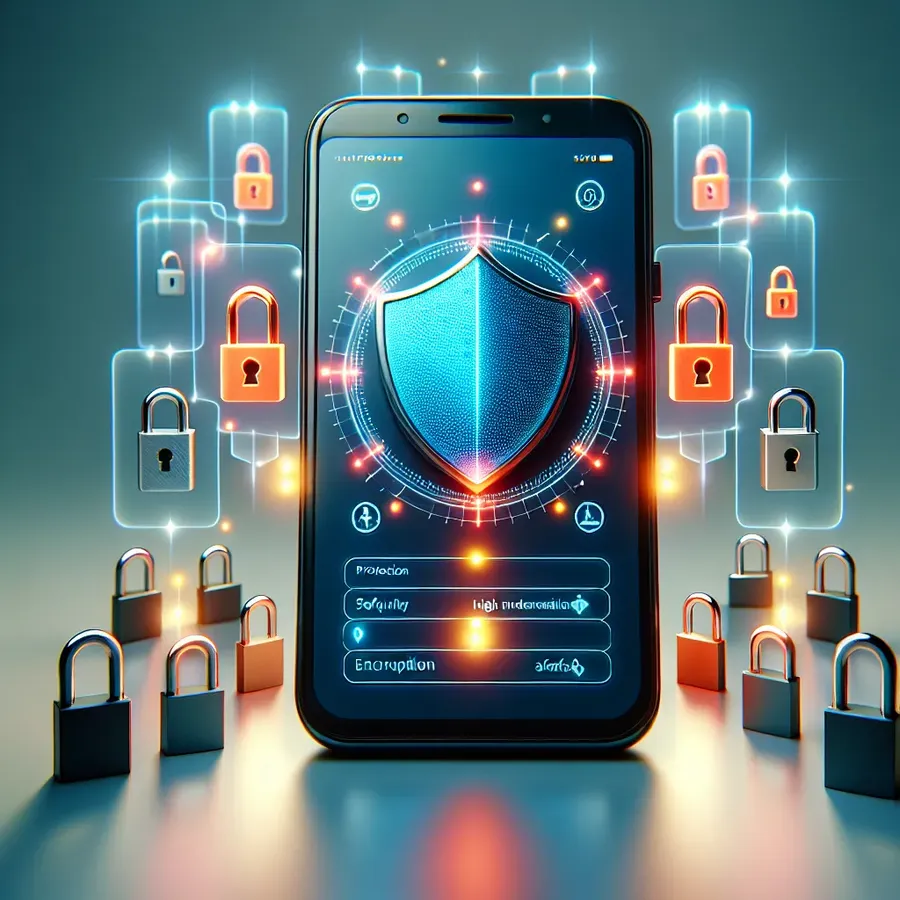Evaluating WhatsApp’s Safety for Your Conversations
Explore how safe is WhatsApp with key security features and tips to enhance your privacy.

In a world where our virtual lives intertwine with reality, securing our digital conversations has never been more vital. WhatsApp, with its seamless messaging experience, has become indispensable to billions. But as we revel in its convenience, we must pause and ponder: How secure is our data on WhatsApp? With privacy concerns and potential threats looming, it’s crucial to evaluate the safety measures the app offers and how we can enhance them for our peace of mind.
Understanding WhatsApp’s Security Features
End-to-End Encryption: A Shield for Your Messages
WhatsApp’s end-to-end encryption ensures that only you and the recipient can read your messages. This encryption acts like a digital locker, where only the intended keys (held by you and the recipient) can open it. Not even WhatsApp or its parent company, Meta, can access these encrypted messages. But is this enough to ward off all threats?
Two-Step Verification: Double the Protection
To further bolster security, WhatsApp offers two-step verification. This feature requires a PIN when registering your phone number on any device, adding an extra layer of security. It’s a simple yet effective tool to keep unauthorized users at bay.
The Hidden Risks Lurking in WhatsApp
Malware and Phishing Attacks
While end-to-end encryption protects the content of your messages, it doesn’t safeguard against malware or phishing attacks targeting your device. Hackers can send malicious links through WhatsApp, and if clicked, these can compromise your device’s security. Forest VPN can be a valuable ally here, masking your IP address and encrypting your internet traffic to fend off such threats.
Data Sharing Concerns
WhatsApp’s affiliation with Meta raises eyebrows over data sharing. Although the app maintains that only limited data is shared with its parent company, the potential for broader data access cannot be ignored. Using Forest VPN can help mask your online footprint, reducing the amount of data accessible to third parties.
Tips for Enhancing WhatsApp Security
Be Wary of Suspicious Links
It’s imperative to scrutinize links received from unknown contacts. These could be phishing attempts designed to steal your personal information. Always verify the source before clicking on any link.
Enable Disappearing Messages
WhatsApp’s disappearing messages feature allows you to set messages to vanish after a specified time. This adds an extra layer of privacy, ensuring sensitive conversations aren’t permanently stored.
Regularly Update the App
Keeping WhatsApp updated ensures you benefit from the latest security patches and features. Enable automatic updates to stay ahead of potential vulnerabilities.
Testimonials: Real Users, Real Experiences
John, a tech enthusiast, shares, “I’ve been using WhatsApp for years, and while I love its convenience, I’m always cautious. With Forest VPN, I feel a lot more secure knowing my messages are truly private.”
Emma, a digital nomad, adds, “Using a VPN alongside WhatsApp has been a game-changer. It’s like having a digital guardian that watches over my online interactions.”
Safeguarding Your Privacy Beyond WhatsApp
While securing WhatsApp is crucial, comprehensive online protection requires more. Here’s where Forest VPN steps in, offering a suite of features that extend beyond messaging apps:
- IP Masking: Hide your real location from prying eyes.
- Data Encryption: Protect all your internet traffic with robust encryption.
- Ad Blocker: Enhance your browsing experience by blocking intrusive ads.
Feature | Forest VPN | |
|---|---|---|
End-to-End Encryption | ✅ | ❌ |
IP Masking | ❌ | ✅ |
Data Encryption | ✅ | ✅ |
Conclusion
WhatsApp offers a reliable platform for encrypted messaging, yet it is not impervious to all threats. By leveraging additional tools like Forest VPN, we can create a secure digital environment that complements WhatsApp’s existing features. In this interconnected world, taking proactive steps to safeguard our privacy is more than just smart—it’s essential. Stay vigilant, stay informed, and most importantly, stay safe online.
How Safe is WhatsApp?
WhatsApp is generally safe due to its end-to-end encryption, which ensures that only you and the recipient can read your messages. However, there are still risks to consider:
- Data Sharing: WhatsApp shares some data with its parent company, Meta.
- Malware Threats: Users can still fall victim to phishing scams or malware through malicious links.
Enhance Your Security with Forest VPN
To further protect your privacy, consider using Forest VPN. Here’s how it helps:
- IP Masking: Hides your real location.
- Data Encryption: Encrypts all your internet traffic.
Stay safe online! Protect your privacy with Forest VPN today!
FAQs About WhatsApp Security Issues
Is WhatsApp completely safe from hackers?
While WhatsApp uses end-to-end encryption to protect messages, it is not entirely safe from hackers. Vulnerabilities can still exist, especially if users do not employ strong passwords or two-step verification, making accounts susceptible to unauthorized access.
How can I enhance my WhatsApp security?
You can enhance your WhatsApp security by enabling two-step verification, being cautious of suspicious messages or links, regularly updating the app, and considering the use of a VPN like MysteriumVPN to add an additional layer of protection.
What are the risks of using WhatsApp for sending private photos?
WhatsApp encrypts messages in transit, making it relatively safe to send private photos. However, risks remain if your account is compromised due to weak passwords or lack of two-step authentication, as well as concerns about unencrypted backups in cloud services.
How does WhatsApp’s data collection impact user privacy?
Although WhatsApp offers end-to-end encryption, it still collects metadata such as your phone number and usage patterns. This information is shared with Meta, raising privacy concerns for users who may be wary of extensive data collection.
Are there safer alternatives to WhatsApp?
Apps like Signal provide enhanced privacy features, including not collecting any metadata and offering end-to-end encryption by default. Telegram also offers encrypted chats but requires users to enable this feature manually.
